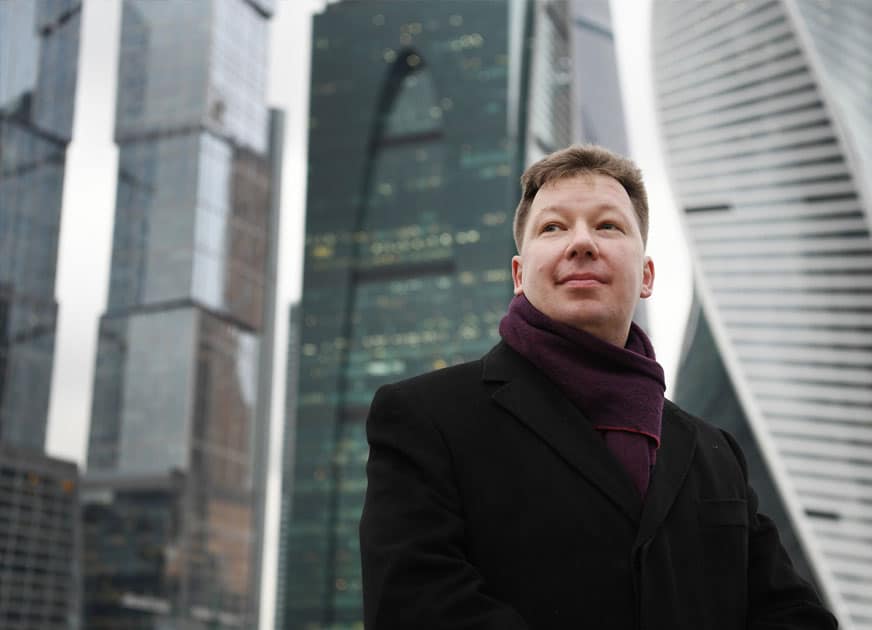News by
The New York Times on
The country’s wealthy also has a reputation for living large and taking risky bets. But in the economic swoon today, getting by as an investor, says one wealthy Russian in the capital, means thinking small.
“In the past two years, Russia has changed quite a bit,” said Aleksei A. Kozlov, a partner in a private equity firm. “Before we invested in simple things like stocks and large company debt, but we changed strategy because the risk just wasn’t justified.”
In the geopolitical upheaval and with oil prices still low, large companies face a risk of sanctions or nationalization, highlighted by the growing share of the economy in Russia in state hands: The government’s portion of the gross domestic product rose from 35 percent in 2005 to 70 percent today, according to statistics from the Federal Antimonopoly Service, a state agency.
“The business climate is extraordinarily murky, and the judicial system is poor,” Mr. Kozlov said. But opportunity exists in untapped potential in the creative and educated population, particularly in Moscow.
“We invest in medium businesses that would be very difficult to take away from the owners, and that are in demand,” he said. A favorite category is private medical clinics, which are booming given cuts to state medical services. Because the doctor talent pool is the heart of the company, it cannot easily be seized, reducing risk.
Mining for minds, and not for minerals, has been paying off, Mr. Kozlov said. Despite Russia’s woes, a space exists for private investors.
Mr. Kozlov’s private equity firm typically steps in to replace bank loans, taking from 25 percent to 49 percent of shares in a closed stock company in exchange.
“A lot of companies have defaulted because of the currency drop, the sanctions or counter-sanctions,” he said. “And the businessmen are good at what they do, but they are weak in financing,” which is where he sees his firm’s role. The firm, which has about $25 million invested in small and medium-size businesses, rarely puts more than $1 million into any one company.
“We don’t have companies with a lot of capital — land, machines, tools, or anything else,” he said. “It is all risk, all hard to sell.”
Mr. Kozlov, 42, is married to a prominent political activist, Olga Romanova. Like many businessmen, he failed once spectacularly, before bouncing back — with a Russian twist.
“I had a corporate dispute with my partner, who was a member of the Senate,” and well-connected with prosecutors, he explained. At issue was ownership of a factory outside Moscow that was making artificial leather. In 2008, Mr. Kozlov was arrested on fraud charges he said were trumped up.
Ms. Romanova formed a group, called Russia Behind Bars, to draw attention to her husband’s detention and the broader problem of arrests of businessmen. It organized the wives into support and lobby groups.
When his legal problems were finally resolved, Ms. Romanova suggested the couple leave Russia. “My wife said, ‘You are exonerated, but it’s better to leave. Get out.’” Mr. Kozlov, though, said he knew no other place to go, felt he could still do business in his hometown, still had friends, and in any case, “Moscow is the city I love most in the world.
“You need to fight to the end,” he said of this experience. Paying bribes is a shortcut for the wealthy in Russia, he said, but also a trap. With persistence, it’s possible to run a transparent business, he said. “The chances are it will be all right.”
“We have been through more than one crisis” in Russia, and times of crisis are always the best for investing, he said. “It’s always a time to start. Some parts of the economy fall, other parts rise. It never happens that everything falls at once.”
“What worries me is the political situation and foreign policy, the conflict that is happening between Russia and a lot of other countries.” He worries that potential buyers of his shares in the small companies may not show up when he wants to exit.
On weekends, Mr. Kozlov dedicates time to his wife’s charity, saying he is giving back for the support shown to him during his roughly three-and-a-half years in jail. The government’s business ombudsman estimates more than 100,000 small-business men are in jail in Russia. The charity, among other things, brings clothes and food to jails to pass along to incarcerated businessmen.
Another weekend ritual for Mr. Kozlov, as for so many other Russian businessmen, is to visit the Sanduny steam baths, an opulent, Greco-Roman themed bathhouse with a deep history in the Russian capital as a mixing place for the well-to-do.
Here, wearing sheets or nothing at all, Russia’s financial and governmental elite let the week’s worries seep away. And sometimes, deals can be cut in the more relaxed atmosphere that could not happen in suits in an office, Mr. Kozlov said.
“I go with a group of friends and discuss business,” he said. “It’s a good atmosphere. It’s totally relaxed. And there’re no cellphones bothering us. We go early in the morning, when there aren’t so many people. And we get the pleasure of the steam, and of our company. I never skip the steam bath.”
Comments
Add comment